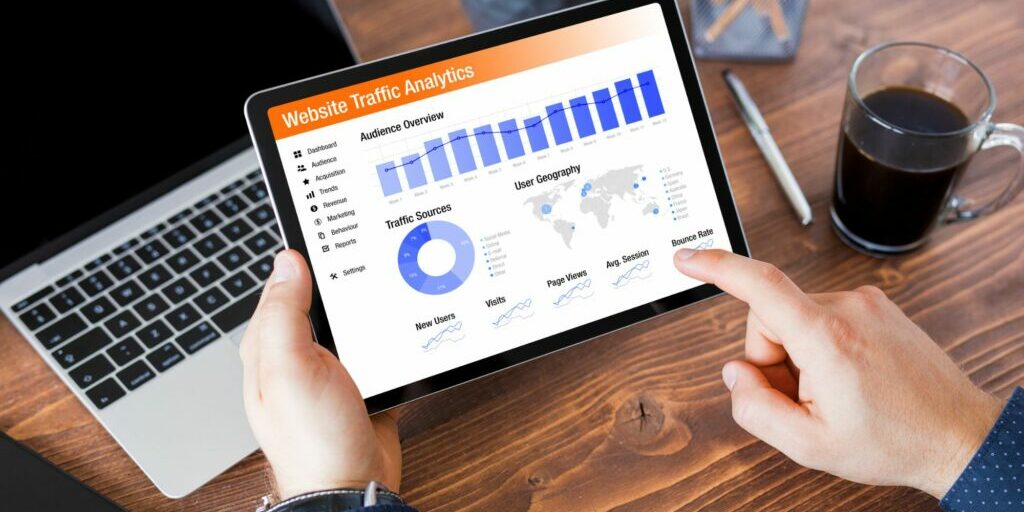The Only Website Traffic Terminology Quick Reference Guide You Need

Keeping track of website traffic is one of the first things I verify my new clients are doing. Some are really comfortable with the concept and know how to use tools like Google Analytics to understand their traffic and how well their marketing campaigns are working. However, there are some who are completely unfamiliar with the concept much less the website traffic terminology.
And let’s face it, it takes a bit to understand website traffic terminology because it can be confusing. Many years ago when I first started looking at website traffic I was really confused by the term bounce rate. I didn’t understand what the references were telling me. The people I asked didn’t understand it any better than I did. So I struggled to understand it.
I’ve put together this resource for anyone who’s struggling to understand the different terms and metrics used to measure website traffic. Because it’s crucial that you know this stuff if you want to improve your online presence and reach more clients.
This reference guide is based on Google Analytics’ latest version – because it’s free and it’s commonly used.
Here’s an alphabetized quick reference to some of the most common website traffic terminology used in Google Analytics UA4.
Average Session Duration
The average session duration is the amount of time a user spends on your website during a session. This metric can give you an idea of how engaging your website is to visitors.
Bounce Rate
The bounce rate is the percentage of visitors who leave your website after only viewing one page. A high bounce rate can indicate that your website is not providing the information or user experience that visitors are looking for.
Direct Traffic
Direct traffic refers to users who type your website’s URL directly into their browser or have it saved as a bookmark.
Email Traffic
Email traffic refers to users who click on a link to your website from an email.
Events
Events are actions that users take on your website, such as clicking on a button or internal link, watching a video, or scrolling. These can be tracked and measured to understand user behavior and engagement on your website.
Goal Conversion
A goal is something that you define within Google Analytics. You use goals to track a specific action you want site visitors to take, such as making a purchase or filling out a contact form. Goal conversion refers to how often that action is taken.
Organic Traffic
When someone uses Google or another search engine to find and visit your site, that’s organic traffic.
Pageviews
A pageview is recorded every time a user views a page on your website.
Paid Traffic
When someone clicks on an ad to get to your website, that’s paid traffic.
Referral Traffic
Referral traffic is users who click on a link to your website from another website.
Retention
Retention helps you get an idea of the number of people who visit your site regularly.
Sessions
Each time a user visits your website, that’s a session.
Social Media Traffic
Social media traffic refers to users who click on a link to your website from a social media platform.
Uncategorized Traffic
Any traffic that does not fit into the traffic categories above is uncategorized. Uncategorized traffic can come to your website through something like a mobile app or QR code.
Users
A user is an individual who has visited your website at least once. A user can have multiple sessions on your website.
Once you understand the website traffic terminology used by Google’s UA4, it’ll be easier for you to analyze your website’s performance. It will also make it easier for you to make informed decisions about how to increase your website traffic. Keep this list as a quick reference guide when going through your website analytics, and you’ll be able to understand and track the key metrics for your website’s traffic.
